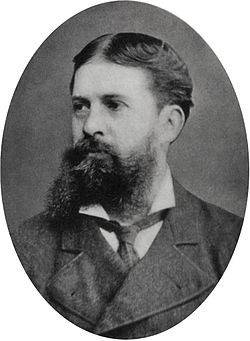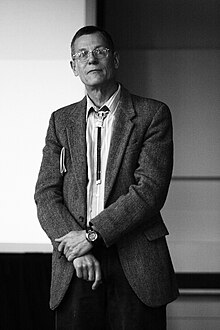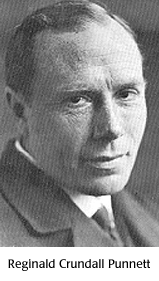![]()
Críticos de Darwin: P
P
°º¤ø,¸¸,ø¤º°`°º¤ø,¸¸,ø¤º°`°º¤ø,¸¸,ø¤º°`°º¤°º¤ø,¸¸,ø¤º°`°º¤ø,¸¸,ø¤º°`°º¤ø,¸¸,ø¤º°`°º¤
Pacheco, Víctor
He pensado en la mejor definición de la Selección Natural, con un ejemplo práctico
para facilitarlo, que consiste en tomar dos espejos, en uno de los espejos colocan la
palabra Evolución y en el otro espejo colocan la palabra Selección Natural, después
colocan los espejos de frente el uno contra el otro, allí te resultará la definición
Perfecta de Selección Natural.
Comentario en este blog del 13 de diciembre de 2010.
°º¤ø,¸¸,ø¤º°`°º¤ø,¸¸,ø¤º°`°º¤ø,¸¸,ø¤º°`°º¤°º¤ø,¸¸,ø¤º°`°º¤ø,¸¸,ø¤º°`°º¤ø,¸¸,ø¤º°`°º¤

Paglia, Camille (1947- )
En Mujeres Enamoradas, la antropología es un subconjunto de la zoologia. La nueva perspectiva radical de Lawrence introduce en el género de la novela social percepciones de Sade y Darwin sobre la integración de la humanidad y el mundo animal.
Vamps & Tramps, p 466. Valdemar intempestivas.
°º¤ø,¸¸,ø¤º°`°º¤ø,¸¸,ø¤º°`°º¤ø,¸¸,ø¤º°`°º¤°º¤ø,¸¸,ø¤º°`°º¤ø,¸¸,ø¤º°`°º¤ø,¸¸,ø¤º°`°º¤
Patterson, Colin (1933 – 1998)
Just as pre-Darwinian biology was carried out by people whose faith was in the Creator and His plan, post-Darwinian biology is being carried out by people whose faith is in, almost, the deity of Darwin. They’ve seen their task as to elaborate his theory and to fill the gaps in it, to fill the trunk and twigs of the tree. But it seems to me that the theoretical framework has very little impact on the actual progress of the work in biological research. In a way some aspects of Darwinism and of neo-Darwinism seem to me to have held back the progress of science.
The Listener October 8, 1981 p.392
So what about the tree here and the numbers on the branches? As Steve said, it is produced by a program. Those numbers don’t pop out of the data in any way, so I suppose those come from massaging the data with evolutionary theory. It is a program that assumes evolution to be true and tells the computer to find a tree. So my question will be: What is the tree telling us about? Is it telling us something about nature or something about evolutionary theory?
«Evolutionism and Creationism» November 5, 1981 p.10
One of the reasons I started taking this anti-evolutionary view, or let’s call it a non- evolutionary view, was last year I had a sudden realization for over twenty years I had thought I was working on evolution in some way. One morning I woke up and something had happened in the night and it struck me that I had been working on this stuff for twenty years and there was not one thing I knew about it. That’s quite a shock to learn that one can be so misled so long. Either there was something wrong with me or there was something wrong with evolutionary theory. Naturally, I know there is nothing wrong with me, so for the last few weeks I’ve tried putting a simple question to various people and groups of people.
Question is: Can you tell me anything you know about evolution, any one thing, that is true? I tried that question on the geology staff at the Field Museum of Natural History and the only answer I got was silence. I tried it on the members of the Evolutionary Morphology Seminar in the University of Chicago, a very prestigious body of evolutionists, and all I got there was silence for a long time and eventually one person said, «I do know one thing – it ought not to be taught in high school.»
«Evolutionism and Creationism» November 5, 1981 p.1
Darwin devoted two chapters of The Origin of Species to fossils, but spent the whole of the first in saying how imperfect the geological record of life is. It seemed obvious to him that, if his theory of evolution is correct, fossils ought to provide incontrovertible proof of it, because each stratum should contain links between the species of earlier and later strata, and if sufficient fossils were collected, it would be possible to arrange them in ancestor descendent sequences and so build up a precise picture of the course of evolution. This was not so in Darwin’s time, and today, after more than another hundred years of assiduous fossil collecting, the picture still has extensive gaps.
Evolution (1999) p.106
But there are still great gaps in the fossil record. Most of the major groups of animals (phyla) appear fully fledged in the early Cambrian rocks, and we know of no fossil forms linking them.
Evolution (1999) p.109
Fossils may tell us many things, but one thing they can never disclose is whether they were ancestors of anything else.
Evolution (1999) p.109
°º¤ø,¸¸,ø¤º°`°º¤ø,¸¸,ø¤º°`°º¤ø,¸¸,ø¤º°`°º¤°º¤ø,¸¸,ø¤º°`°º¤ø,¸¸,ø¤º°`°º¤ø,¸¸,ø¤º°`°º¤

Pauli, Wolfgang (1900-1958)
En discusiones con biólogos encuentro grandes dificultades cuando aplican el concepto de “selección natural” de manera amplia, sin ser capaces de estimar la probabilidad de la ocurrencia en un tiempo empíricamente dado de justamente esos eventos que han sido importantes para la evolución biológica. Tratando la escala de tiempo geológico de la evolución como un infinito teórico se encuentran con una cómoda postura para evitar el problema de la finalidad. Mientras pretenden que tal postura les mantiene en un discurso plenamente “científico” y “racional” lo que hacen es devenir en realidad muy irracionales, particularmente porque usan el término “azar”, no ya en combinación con una estimación de probabilidades matemáticamente definidas, sino que lo aplican a eventos únicos y raros más o menos sinónimos del antiguo término “milagro”
Este modelo evolutivo es un intento, en línea con las ideas de la segunda mitad del siglo XIX, de respaldar la total eliminación de cualquier rastro de finalidad. Esta debe pues, de alguna forma, ser remplazada introduciendo elementos de azar.
°º¤ø,¸¸,ø¤º°`°º¤ø,¸¸,ø¤º°`°º¤ø,¸¸,ø¤º°`°º¤°º¤ø,¸¸,ø¤º°`°º¤ø,¸¸,ø¤º°`°º¤ø,¸¸,ø¤º°`°º¤

Peirce, Charles Sanders (1839-1914)
Aunque soy un ignoramus en biología, a esta altura debería reconocer la metafísica cuando la encuentro; y es mi parecer que aquellos biólogos cuyos puntos de vista de clasificación son los más opuestos a los de Agassiz, están saturados con metafísica en su forma más peligrosa, -es decir, la forma inconsciente-, en tal grado que lo que dicen al respecto es más bien la expresión de una metafísica del siglo catorce absorbida en forma tradicional que de una observación científica.
°º¤ø,¸¸,ø¤º°`°º¤ø,¸¸,ø¤º°`°º¤ø,¸¸,ø¤º°`°º¤°º¤ø,¸¸,ø¤º°`°º¤ø,¸¸,ø¤º°`°º¤ø,¸¸,ø¤º°`°º¤

Pennetta Enzo
Anche se fallisce a spiegare i due problemi più importanti (la nascita della vita dalla materia inanimata e la speciazione asincrona di organismi a contenuto informativo crescente) per cui è stato inventato e cui da 150 anni si dedicano i suoi adepti; anche se uno dei suoi meccanismi fondamentali (la successione graduale di micro-mutazioni) risulta falsificato dai reperti paleontologici, che evidenziano invece un processo evolutivo dominato dalla difformità e da improvvise accelerazioni; anche se esso assegna un ruolo smisurato all’altro suo meccanismo fondamentale, il caso, vero e proprio “deus ex machina” con cui risolve la propria incapacità predittiva, esplicativa ed anche – provvidenzialmente – le contraddizioni sperimentali succitate; anche se, oltre che per il ruolo scompigliatore del caso, è costituzionalmente infalsificabile per la tautologia insita nel postulato evolutivo della sopravvivenza del più adatto, il cui significato non sembra differire da “sopravvivenza di quello che è sopravvissuto”: nonostante tutto questo, il darwinismo nelle sue molteplici e contrastanti versioni è considerato “scienza” dalla grande maggioranza degli opinion maker e come tale è insegnato nelle scuole. Perché? Perché non abbiamo una teoria scientifica alternativa e perché come visione filosofica (a ciò si riduce infine il darwinismo) esso interpreta maggioritariamente lo spirito, naturalistico e materialistico, dei nostri tempi, piuttosto della visione filosofica alternativa (il creazionismo).
Incluso si no logra explicar los dos temas más importantes (la aparición de la vida a partir de materia inanimada y la especiación asincrónica de los organismos con contenido creciente de información) para los que fue inventado y a los cuales hace ya 150 años que se dedican sus seguidores, incluso si uno de sus mecanismos fundamentales (la sucesión gradual de micro-mutaciones) está descartado por la paleontología, mostrando en su lugar un proceso evolutivo dominado por las diferencias y la aceleración repentina, incluso si eso otorga un papel desmesurado a su otro mecanismo fundamental, el caso, verdadera y propio «Deus ex machina» que resuelve su incapacidad predictiva, explicativa y también – providencialmente – las contradicciones experimentales anteriores, incluso si, además de la función de desorganizador, es tautología constitucionalmente infalsificable inherente en el postulado evolutivo de la supervivencia del más apto, cuyo significado no parece diferir de la «supervivencia de lo que ha sobrevivido»: a pesar de todo esto, el darwinismo en sus versiones múltiples y contradictorias se considera «ciencia» por la gran mayoría de los líderes de opinión y como tal se enseña en las escuelas. ¿Por qué? ¿Por qué no tenemos una teoría científica alternativa y por qué un punto de vista filosófico (finalmente se reduce a eso el darwinismo) interpreta mayoritariamente el espíritu, naturalista y materialista, de nuestro tiempo, en lugar de la visión alternativa filosófica (creacionismo)?.
°º¤ø,¸¸,ø¤º°`°º¤ø,¸¸,ø¤º°`°º¤ø,¸¸,ø¤º°`°º¤°º¤ø,¸¸,ø¤º°`°º¤ø,¸¸,ø¤º°`°º¤ø,¸¸,ø¤º°`°º¤
Pepe (autor de Evolución, la miseria del darwinismo)
Cualquier persona sensata se preguntará ¿Por qué persiste el darwinismo como teoría científica contrastada? La respuesta es sencilla: Porque cualquier alternativa es imposible de aceptar, dadas las premisas de nuestro paradigma cultural: el cientifismo. La primera de estas premisas es que todo es material y la materia es explicable por si misma. La afirmación central del darwinismo, no es la supervivencia del mas apto, es que todo el universo y en el universo es producto del azar y la necesidad. El darwinismo exige aceptar esta premisa, arguyendo el principio de la navaja de Occam: “En igualdad de condiciones la solución más sencilla, es probablemente la correcta”.
Afirmar que todo es producto del azar es sin duda una solución simple y elegante, el problema para el darwinismo es que el azar también tiene sus reglas detectables, Hoyle el famoso astrofísico, habla de ello en “Matemáticas de la evolución” y “El universo inteligente”, por supuesto que el sentido común nos indica que grandes cambios y gran complejidad necesitan enormes cantidades de tiempo para que lleguen a producirse, por eso a los darwinistas les pone de los nervios entrar en detalles de la complejidad de la vida o del ritmo evolutivo, simplemente esas cosas no se comentan con adversarios.
Sin embargo el darwinismo persiste como teoría ortodoxa, cada vez con más contradicciones y problemas, pero ahí sigue.
Como escribió Von Bertalanffy:
El hecho de que una teoría tan vaga, tan insuficientemente demostrable, tan ajena a los criterios que suelen aplicarse en las ciencias empíricas, se haya convertido en un dogma no es explicable, si no es con argumentos sociológicos.
Como explica T. S. Kuhn en “La estructura de las revoluciones científicas”, los paradigmas científicos, no se abandonan porque se demuestre su falsedad, sino que en la periferia del sistema se comienzan a plantear alternativas a la ortodoxia y posteriormente el núcleo principal de los científicos siguiendo el lema universal de “¿donde va Vicente? donde va la gente”, da un cambio brusco, revolucionario.
Muchos científicos permanecen ortodoxos porque fuera hace frío, y la represión es cada vez mayor para quien se sale del rebaño, pero la mayoría simplemente no se plantea problemas globales, o no los entiende. La barbarie del especialista que no sale de su pequeño campo.
La caída del darwinismo irá unida, si es que algún día se produce, a la del cientifismo que es uno con él, y esto hará más difícil y brusco este cambio.
°º¤ø,¸¸,ø¤º°`°º¤ø,¸¸,ø¤º°`°º¤ø,¸¸,ø¤º°`°º¤°º¤ø,¸¸,ø¤º°`°º¤ø,¸¸,ø¤º°`°º¤ø,¸¸,ø¤º°`°º¤
Peters Robert Henry (1946-1996)
Definition of the nature of scientific constructs can play as important a role in science as the original elaboration of an idea. Such clarification should eliminate confusion and lead to the construct’s proper application. Although Darwinian evolution remains one of the greatest unifying concepts in biology, its utility has been questioned. Difficulties in defining «fittest» in the phrase «survival of the fittest» have led some authors to conclude that the Darwinian theory is a meaningless formulation because fitness is apparently equivalent to survival (Waddington 1957; Coffin, cited in Scriven 1959). The testing of evolutionary theory against observation is, at best, extremely difficult (Slobodkin 1968; Orians 1973), and Scriven (1959) suggests that it is not to be expected. Birch and Ehrlich (1967) maintain that our theory of evolution is «not necessarily false» but «outside of empirical science.» Although each of these authors has found fault with the theory of evolution, none has indicated precisely where Darwinian theory may be applied and what may be expected from such an application. In this essay, I argue that the «theory of evolution» does not make predictions, so far as ecology is concerned, but is instead a logical formula which can be used only to classify empiricisms and to show the relationships which such a classification implies. Similar criticisms are then made of several ecological concepts. The essence of the argument is that these «theories» are actually tautologies and, as such, cannot make empirically testable predictions. They are not scientific theories at all.
(Tautology in Evolution and Ecology, 1976)
°º¤ø,¸¸,ø¤º°`°º¤ø,¸¸,ø¤º°`°º¤ø,¸¸,ø¤º°`°º¤°º¤ø,¸¸,ø¤º°`°º¤ø,¸¸,ø¤º°`°º¤ø,¸¸,ø¤º°`°º¤

Popper, Karl (1902-1994)
Darwinism is not a testable scientific theory but a metaphysical research program
“No existe ninguna ley de la evolución, sino sólo el hecho histórico de que las plantas y los animales cambian, o, más precisamente, que han cambiado. La idea de una ley que determine la dirección y el carácter de la evolución es un típico error del siglo XIX que surge de la tendencia general a atribuir a la “Ley Natural” las funciones tradicionalmente atribuidas a Dios.”
(p. 408 en Conjecturas y Refutaciones: The Growth of Scientific Knowledge. Paidós Barcelona. 1981)
°º¤ø,¸¸,ø¤º°`°º¤ø,¸¸,ø¤º°`°º¤ø,¸¸,ø¤º°`°º¤°º¤ø,¸¸,ø¤º°`°º¤ø,¸¸,ø¤º°`°º¤ø,¸¸,ø¤º°`°º¤

Provine, William
“Evolution is the greatest engine of atheism ever invented. Naturalistic evolution has clear consequences that Charles Darwin understood perfectly. 1) No gods worth having exist; 2) no life after death exists; 3) no ultimate foundation for ethics exists; 4) no ultimate meaning in life exists; and 5) human free will is nonexistent.”
«Evolution: Free will and punishment and meaning in life” 1998 Darwin Day Keynote Address
°º¤ø,¸¸,ø¤º°`°º¤ø,¸¸,ø¤º°`°º¤ø,¸¸,ø¤º°`°º¤°º¤ø,¸¸,ø¤º°`°º¤ø,¸¸,ø¤º°`°º¤ø,¸¸,ø¤º°`°º¤

Punnett, Reginald (1875-1967)
The whole matter is too often approached in much the same spirit as that in which John Ray approached it two centuries ago, except that the Omnipotency of the Deity is replaced by the Omnipotency of Natural Selection. The vital point, which is whether Natural Selection does offer a satisfactory explanation of the living world, is too frequently lost sight of. Whether we are bound or not to interpret all the phenomena of life in terms of natural selection touches the basis of modern philosophy. It is for the biologist to attempt to find an answer, and there are few more profitable lines of attack than a critical examination of the facts of adaptation.
Introduction to the book Mimicry In Butterflies (1915).
°º¤ø,¸¸,ø¤º°`°º¤ø,¸¸,ø¤º°`°º¤ø,¸¸,ø¤º°`°º¤°º¤ø,¸¸,ø¤º°`°º¤ø,¸¸,ø¤º°`°º¤ø,¸¸,ø¤º°`°º¤


